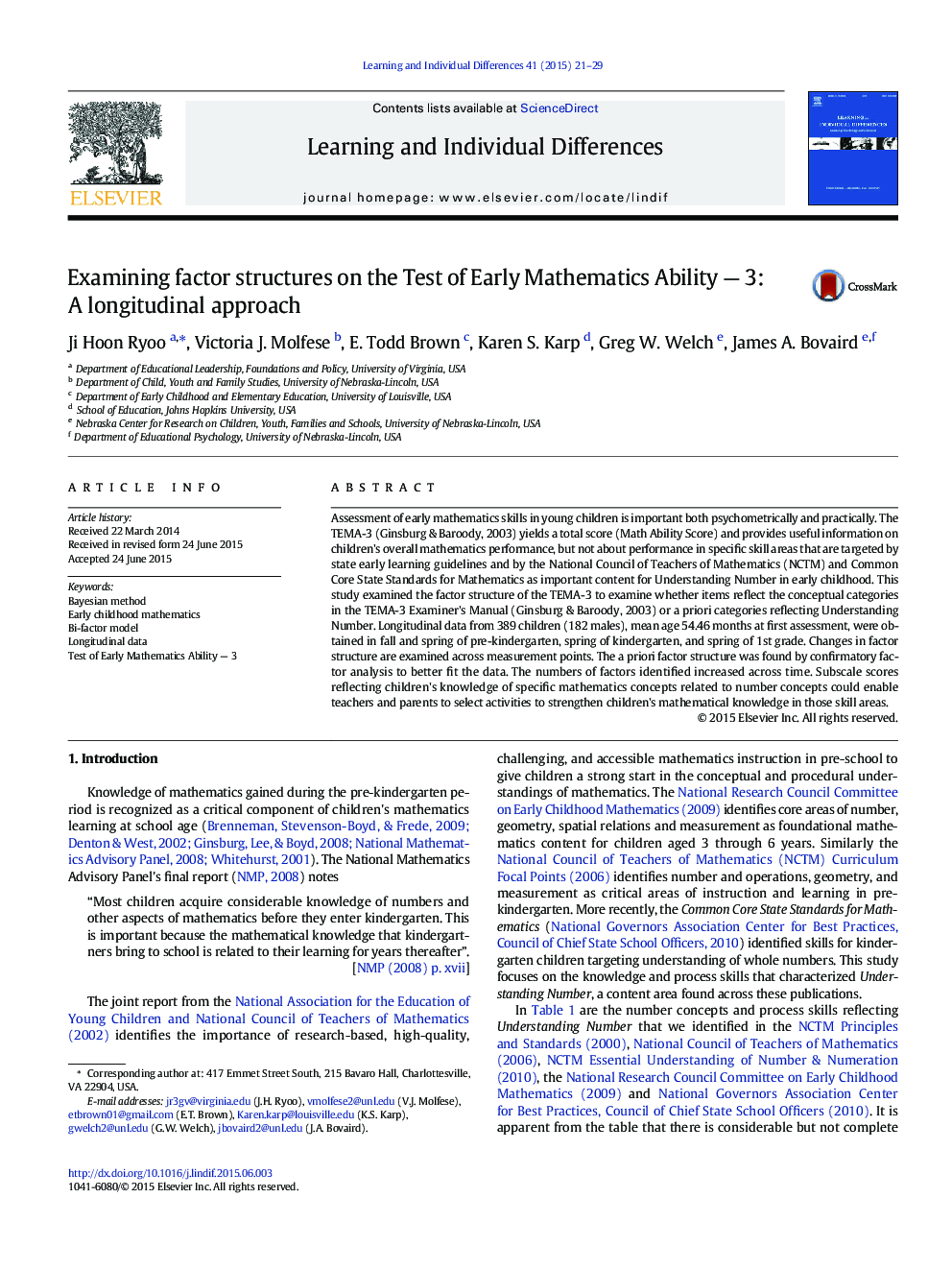| کد مقاله | کد نشریه | سال انتشار | مقاله انگلیسی | نسخه تمام متن |
|---|---|---|---|---|
| 364678 | 621082 | 2015 | 9 صفحه PDF | دانلود رایگان |
• Assessment of early mathematics skills in young children
• Confirmatory factor analysis on a priori factor structure of the TEMA-3
• Bi-factor model and 2nd order factor model using Bayesian methods
Assessment of early mathematics skills in young children is important both psychometrically and practically. The TEMA-3 (Ginsburg & Baroody, 2003) yields a total score (Math Ability Score) and provides useful information on children's overall mathematics performance, but not about performance in specific skill areas that are targeted by state early learning guidelines and by the National Council of Teachers of Mathematics (NCTM) and Common Core State Standards for Mathematics as important content for Understanding Number in early childhood. This study examined the factor structure of the TEMA-3 to examine whether items reflect the conceptual categories in the TEMA-3 Examiner's Manual (Ginsburg & Baroody, 2003) or a priori categories reflecting Understanding Number. Longitudinal data from 389 children (182 males), mean age 54.46 months at first assessment, were obtained in fall and spring of pre-kindergarten, spring of kindergarten, and spring of 1st grade. Changes in factor structure are examined across measurement points. The a priori factor structure was found by confirmatory factor analysis to better fit the data. The numbers of factors identified increased across time. Subscale scores reflecting children's knowledge of specific mathematics concepts related to number concepts could enable teachers and parents to select activities to strengthen children's mathematical knowledge in those skill areas.
Journal: Learning and Individual Differences - Volume 41, July 2015, Pages 21–29
